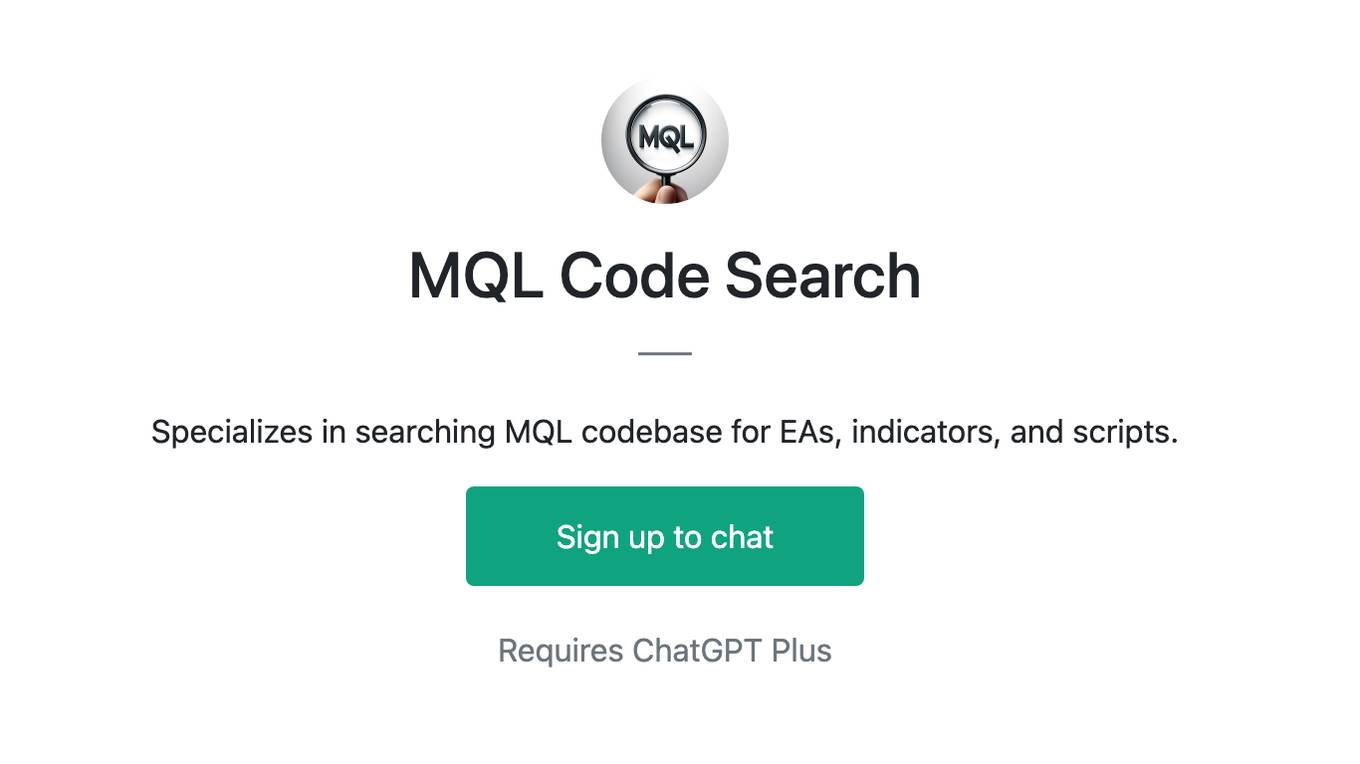Best AI tools for< Codebase Analysis >
20 - AI tool Sites

AI Tech Debt Analysis Tool
This website is an AI tool that helps senior developers analyze AI tech debt. AI tech debt is the technical debt that accumulates when AI systems are developed and deployed. It can be difficult to identify and quantify AI tech debt, but it can have a significant impact on the performance and reliability of AI systems. This tool uses a variety of techniques to analyze AI tech debt, including static analysis, dynamic analysis, and machine learning. It can help senior developers to identify and quantify AI tech debt, and to develop strategies to reduce it.

Vilosia
Vilosia is an AI-powered platform that helps medium and large enterprises with internal development teams to visualize their software architecture, simplify migration, and improve system modularity. The platform uses Gen AI to automatically add event triggers to the codebase, enabling users to understand data flow, system dependencies, domain boundaries, and external APIs. Vilosia also offers AI workflow analysis to extract workflows from function call chains and identify database usage. Users can scan their codebase using CLI client & CI/CD integration and stay updated with new features through the newsletter.

Greptile
Greptile is an AI tool designed to assist developers in code review processes. It integrates with GitHub to review pull requests and identify bugs, antipatterns, and other issues in the codebase. By leveraging AI technology, Greptile aims to streamline the code review process and improve code quality.

Senior AI
Senior AI is a platform that leverages Artificial Intelligence to help individuals and companies develop and manage software products more efficiently and securely. It offers codebase awareness, bug analysis, security optimization, and productivity enhancements, making software development faster and more reliable. The platform provides different pricing tiers suitable for individuals, power users, small teams, growing teams, and large teams, with the option for enterprise solutions. Senior AI aims to supercharge software development with an AI-first approach, guiding users through the development process and providing tailored code suggestions and security insights.
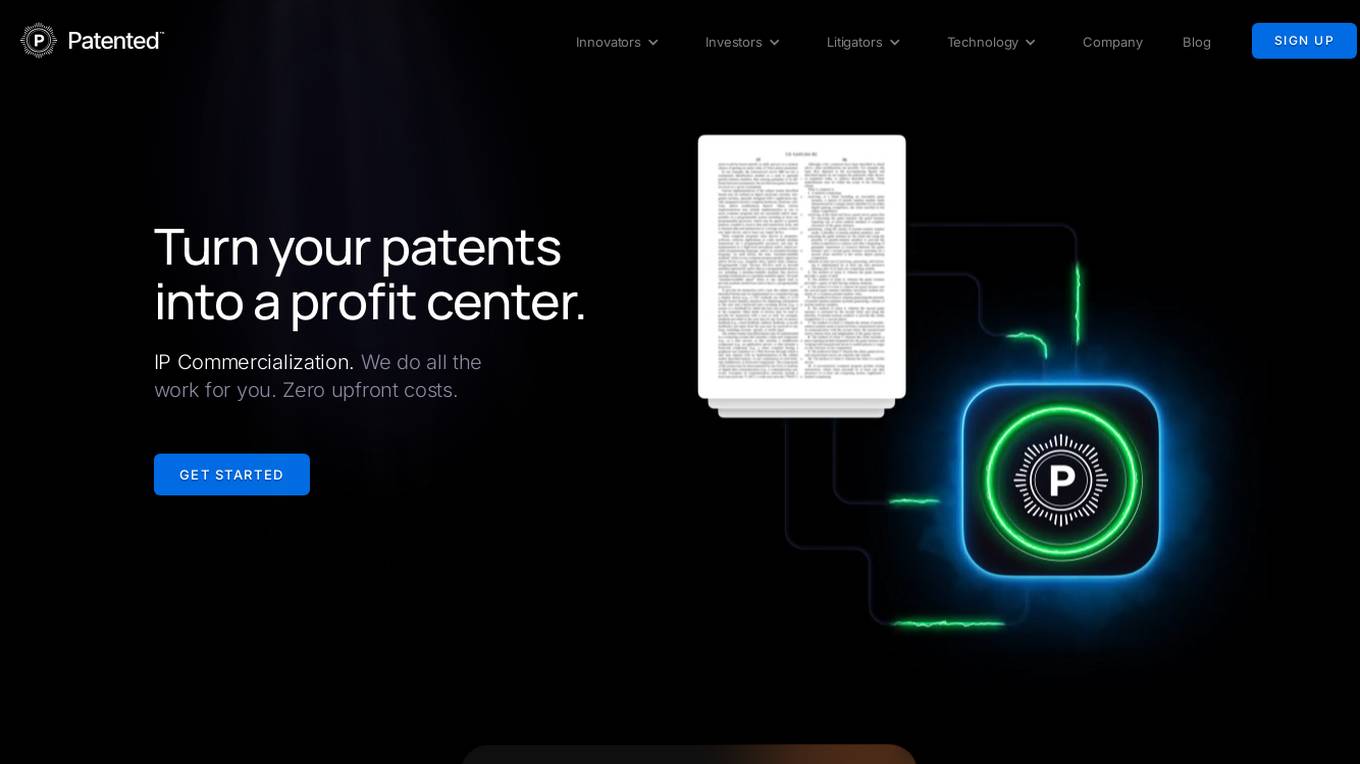
Patented.ai
Patented.ai is an AI-powered platform that specializes in IP commercialization, patent valuation, and litigation support. The platform helps users unlock hidden revenue from their IP portfolio, identify valuable innovations in their codebase, and get data-driven insights on patent value and industry applicability. It offers features such as source code analysis, identifying licensees instantly, and mapping patent claims to source code. Patented.ai is trusted by leading innovators and IP counsel worldwide for lightning-fast insights and comprehensive IP strength assessments.
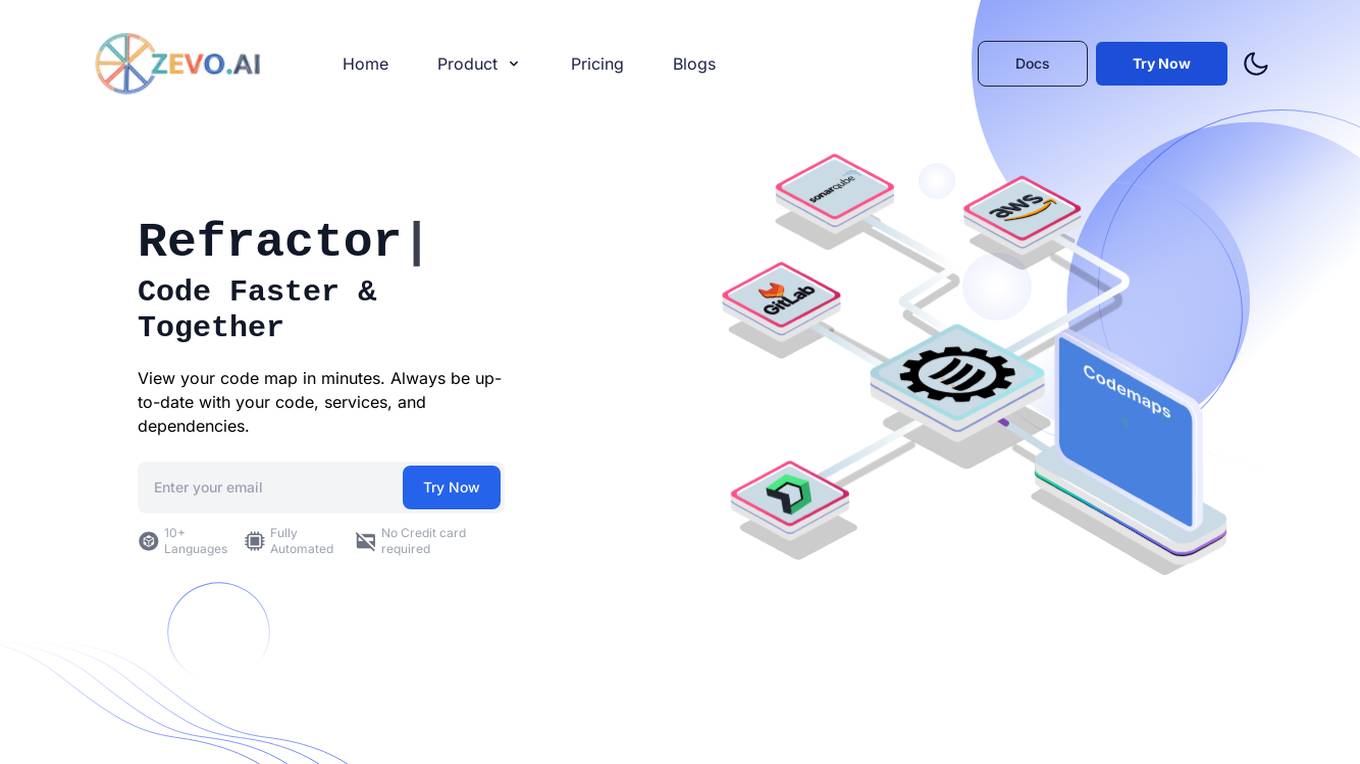
Zevo.ai
Zevo.ai is an AI-powered code visualization tool designed to accelerate code comprehension, deployment, and observation. It offers dynamic code analysis, contextual code understanding, and automatic code mapping to help developers streamline shipping, refactoring, and onboarding processes for both legacy and existing applications. By leveraging AI models, Zevo.ai provides deeper insights into code, logs, and cloud infrastructure, enabling developers to gain a better understanding of their codebase.
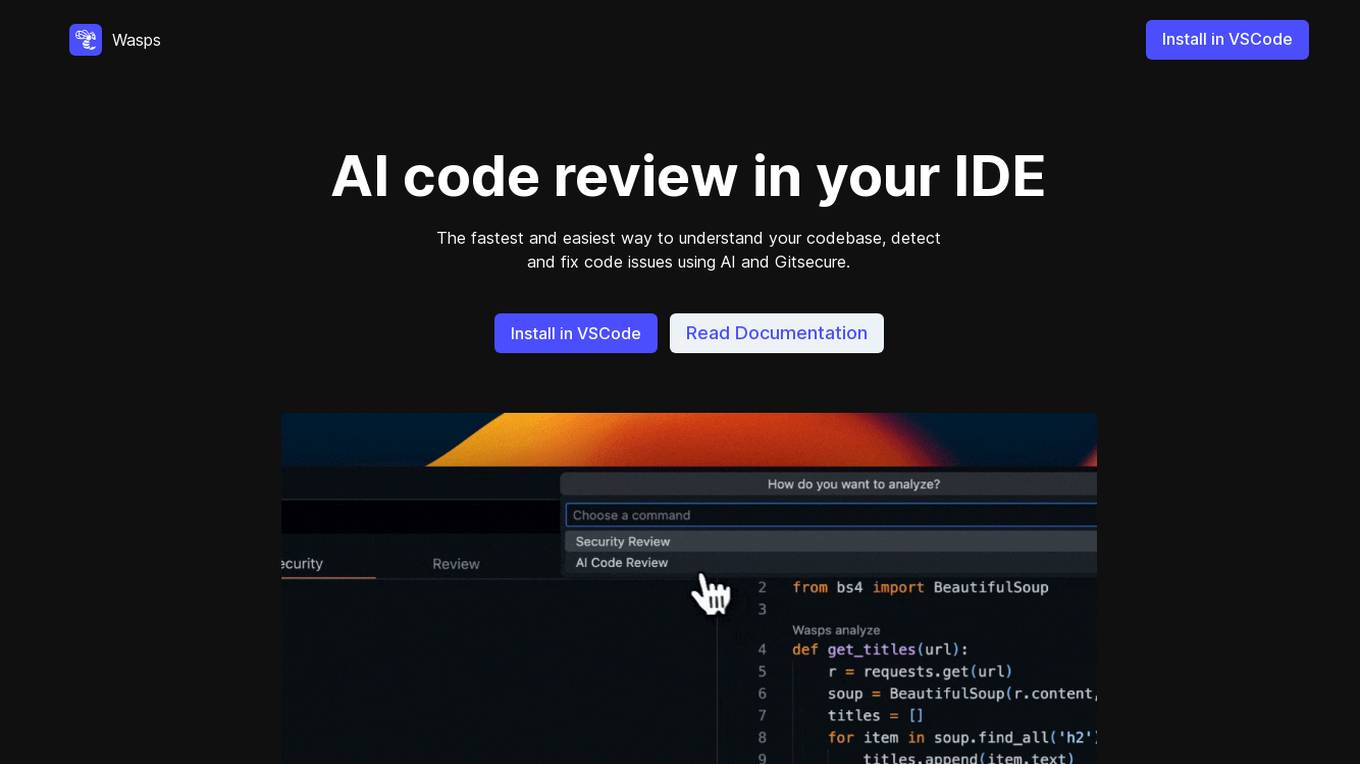
Wasps
Wasps is an AI code review tool that integrates seamlessly into VSCode, providing developers with a fast and efficient way to understand their codebase, detect and fix code issues using AI and Gitsecure. With Wasps, developers can identify and fix buggy & vulnerable code in minutes, receive clear and actionable feedback driven by deep analysis, and get recommendations for potential issues and improvements within their codebase. The tool allows developers to keep coding as usual while Wasps analyzes their code for them, making it easier to maintain code quality and keep bugs out of their code.
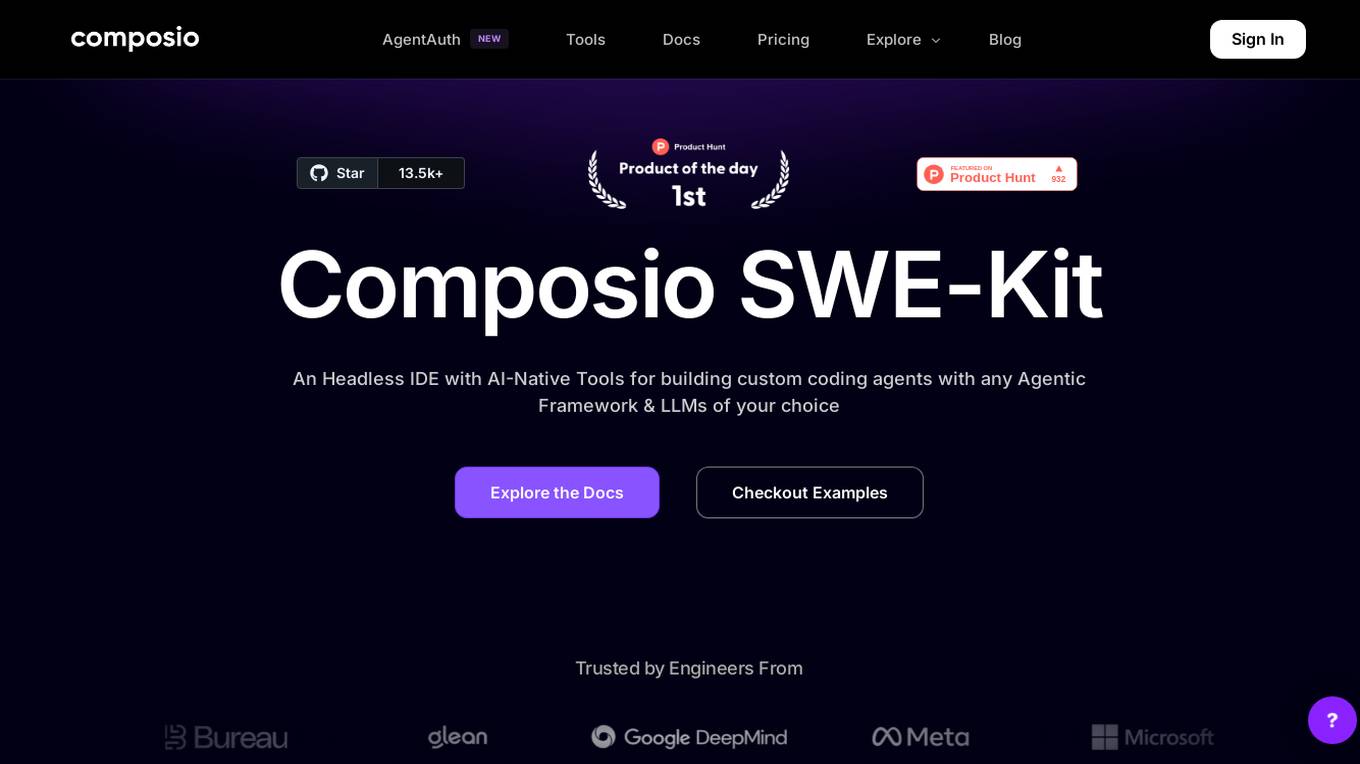
SWE Kit
SWE Kit is an open-source headless IDE designed for building custom coding agents with state-of-the-art performance. It offers AI-native tools to streamline the coding review process, enhance code quality, and optimize development efficiency. The application supports various agentic frameworks and LLM inference providers, providing a flexible runtime environment for seamless codebase interaction. With features like code analysis, code indexing, and third-party service integrations, SWE Kit empowers developers to create and run coding agents effortlessly.
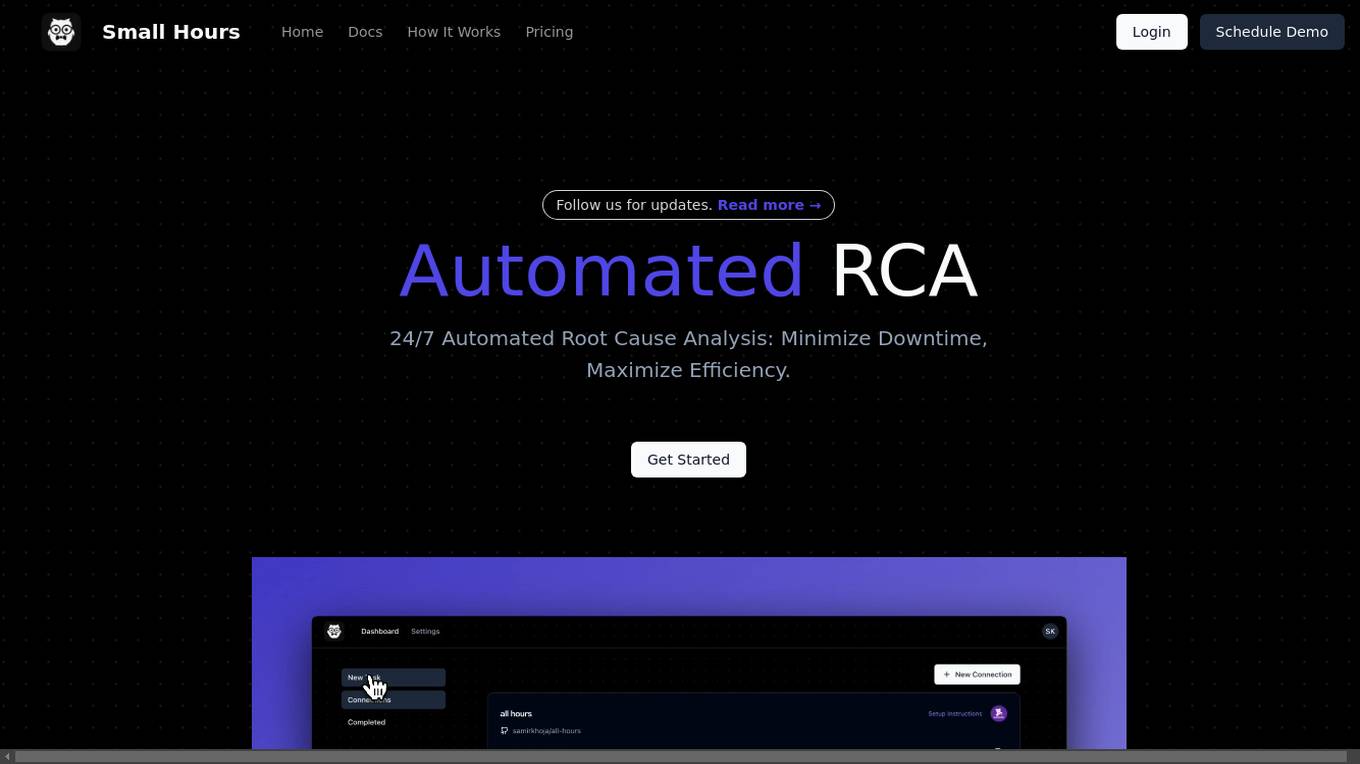
Small Hours
Small Hours is an AI-powered Root Cause Analysis (RCA) tool designed to minimize downtime and maximize efficiency for engineering teams. It offers automated RCA 24/7, streamlining on-call rotations, and providing intelligent triage of issues. The tool supports OpenTelemetry for seamless integration with any stack, hooks into existing alarms to identify critical issues, and allows for connecting codebases and runbooks as context and instructions. Small Hours is built by former engineers of Amazon and is optimized for enterprise velocity and scale, with a focus on resolving issues faster and providing accurate fixes.
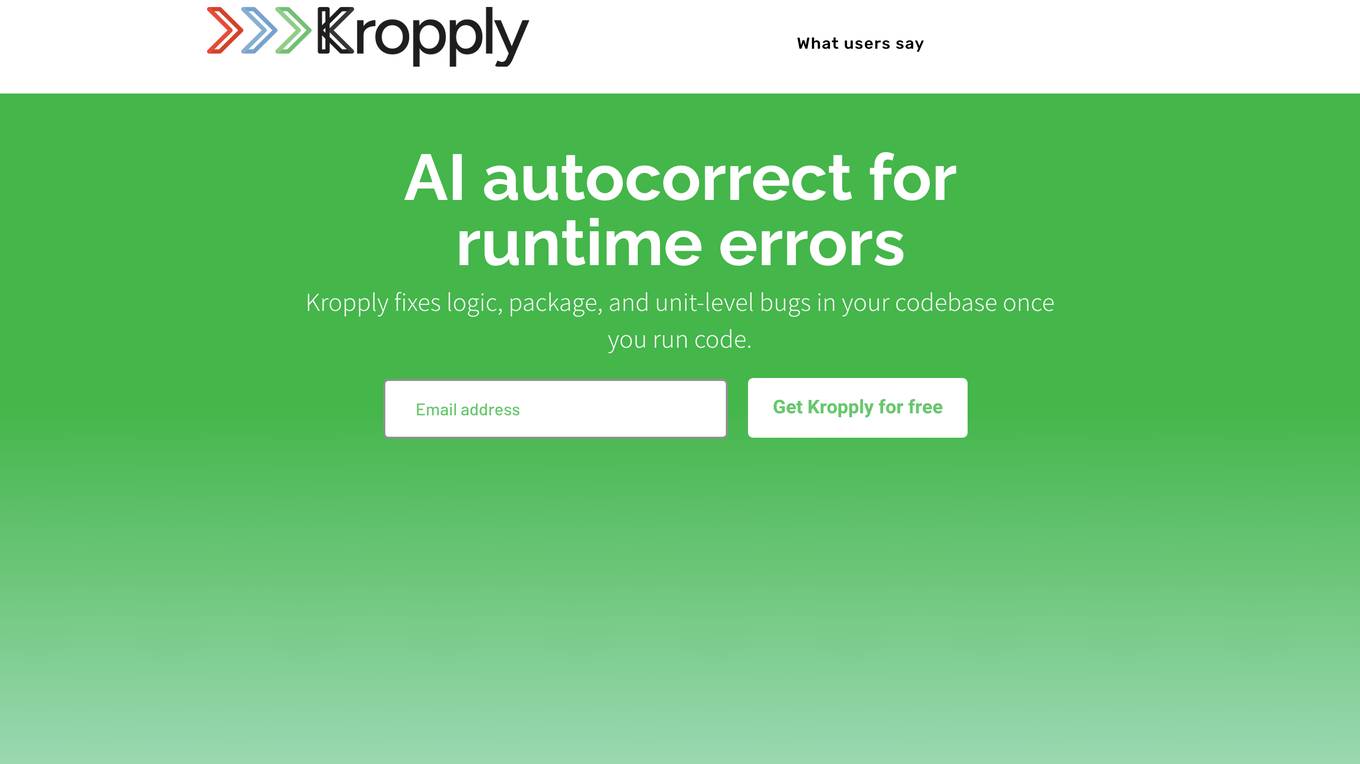
Kropply
Kropply is an AI-powered debugging tool that helps developers fix logic, package, and unit-level bugs in their codebase once they run the code. It integrates with VSCode to provide real-time insights and error correction, streamlining the debugging process and making coding more efficient.
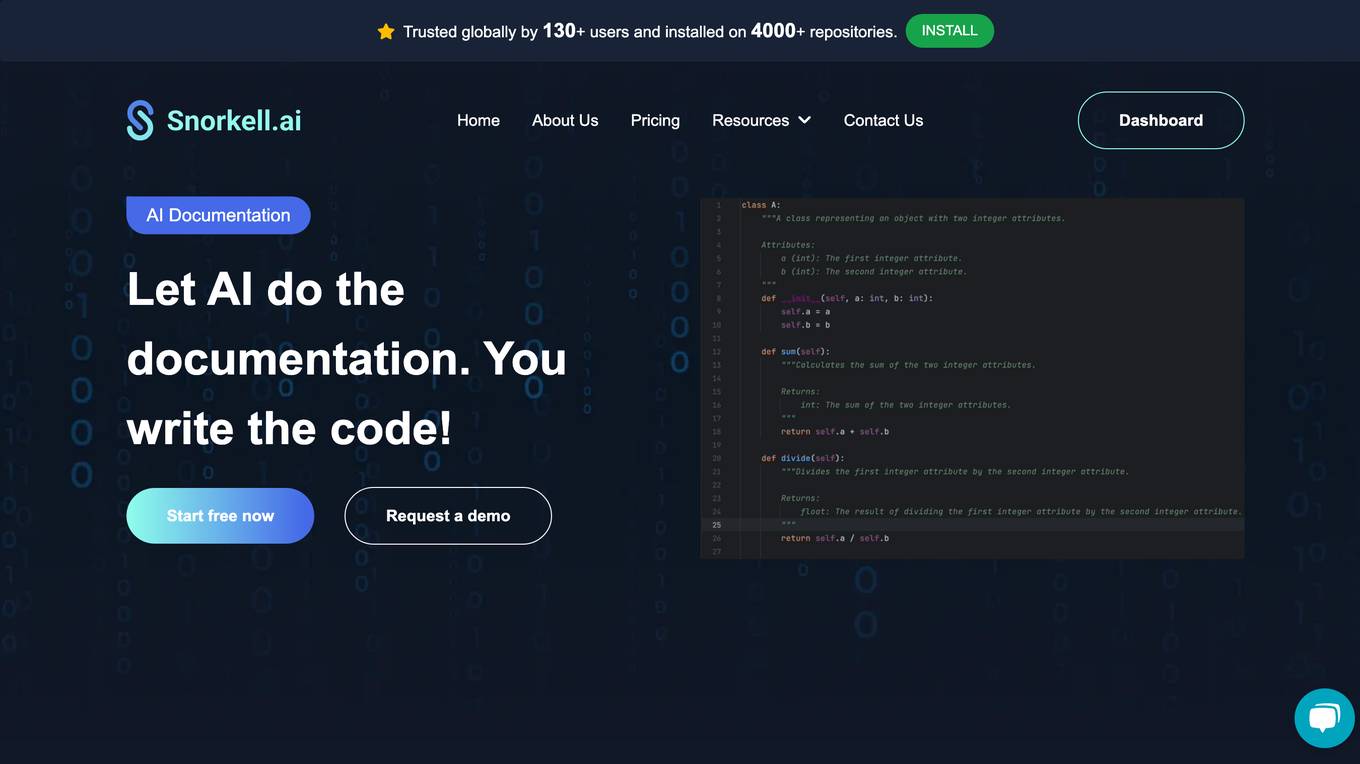
Snorkell.ai
Snorkell.ai is an automated documentation generation tool that uses AI to create and update docstrings for GitHub projects. It supports multiple programming languages, including Python, JavaScript, TypeScript, Java, and Kotlin. Snorkell.ai integrates with GitHub and automatically generates docstrings whenever a pull request is merged, ensuring that documentation is always up-to-date with the codebase. It helps developers save time and effort by automating the documentation process, leading to improved code quality and reduced onboarding time.
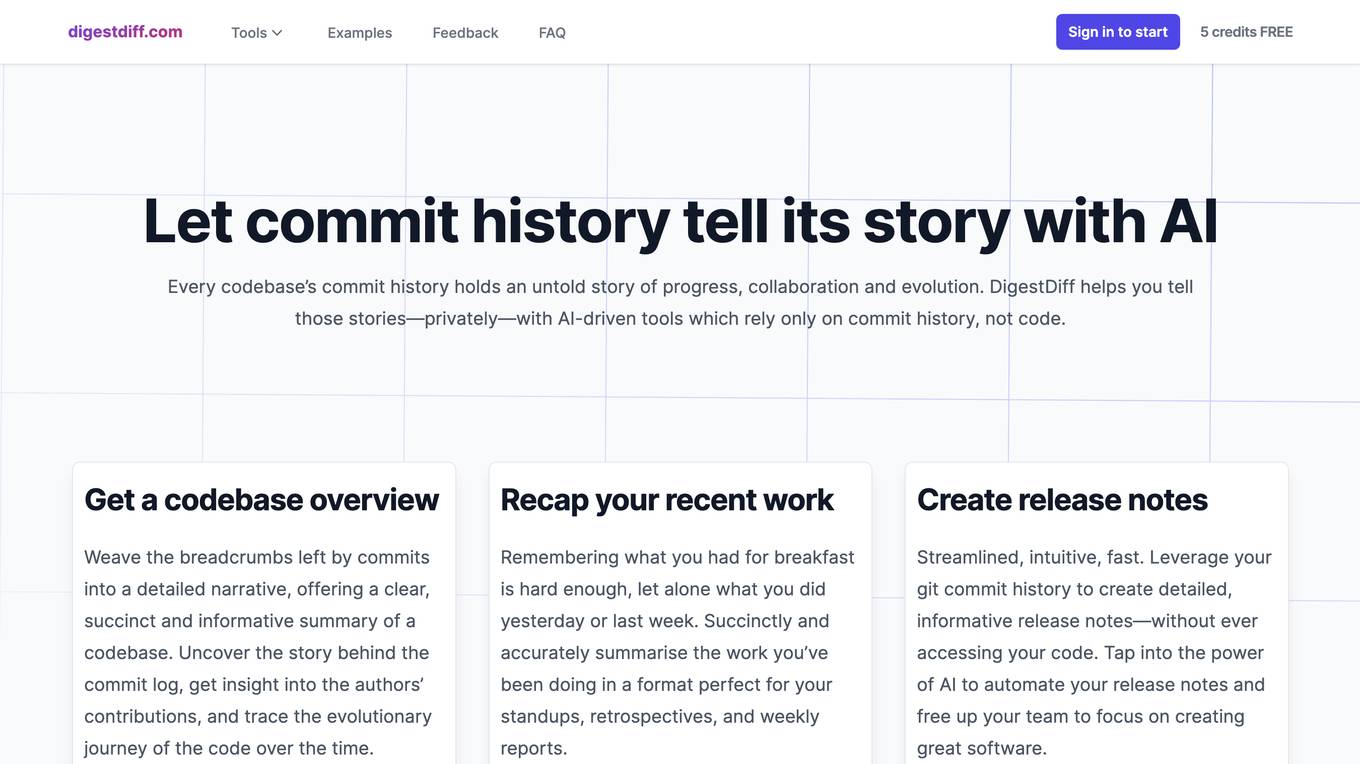
DigestDiff
DigestDiff is an AI-driven tool that helps users analyze and understand commit history in codebases. By leveraging AI technology, DigestDiff provides detailed narratives, summaries, and insights based solely on commit history, without accessing the code itself. Users can accelerate onboarding, recap recent work, create release notes, and maintain privacy and security while using the tool.
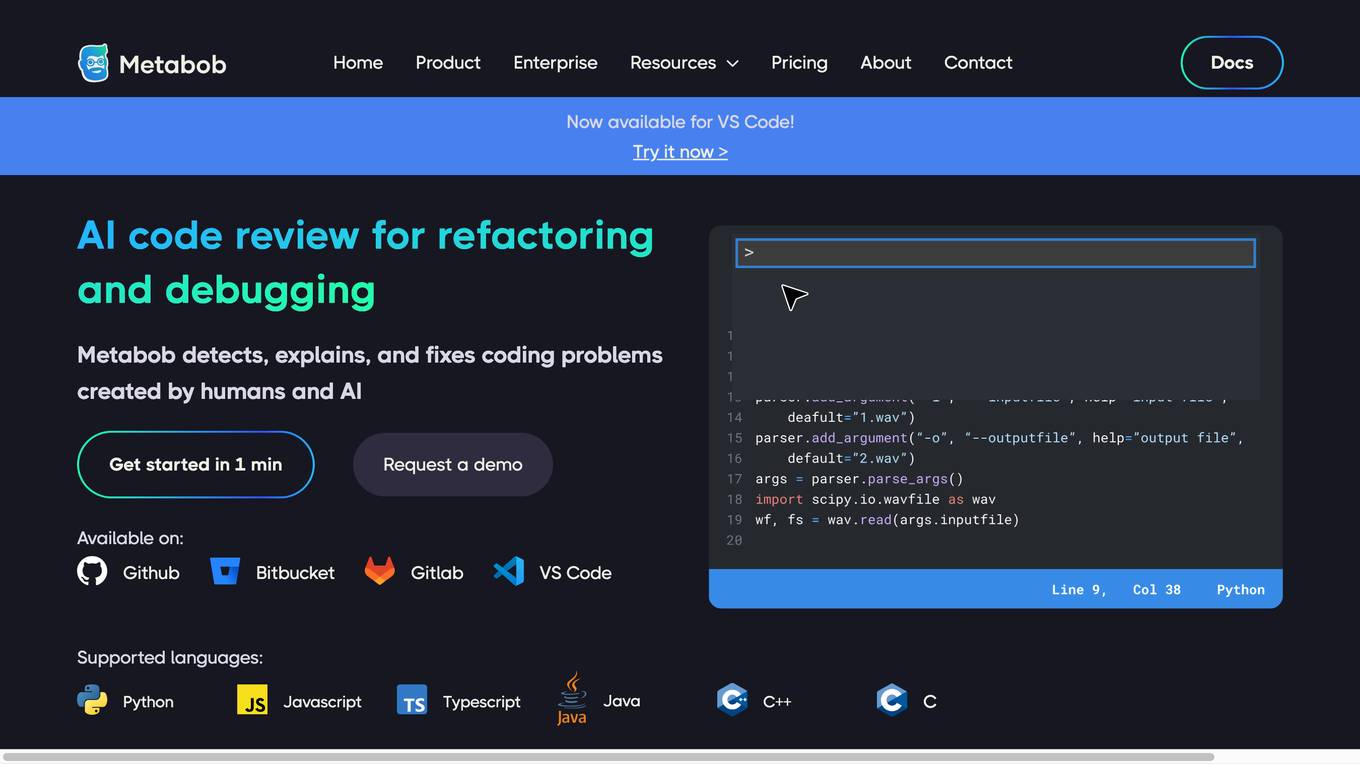
Metabob
Metabob is an AI-powered code review tool that helps developers detect, explain, and fix coding problems. It utilizes proprietary graph neural networks to detect problems and LLMs to explain and resolve them, combining the best of both worlds. Metabob's AI is trained on millions of bug fixes performed by experienced developers, enabling it to detect complex problems that span across codebases and automatically generate fixes for them. It integrates with popular code hosting platforms such as GitHub, Bitbucket, Gitlab, and VS Code, and supports various programming languages including Python, Javascript, Typescript, Java, C++, and C.
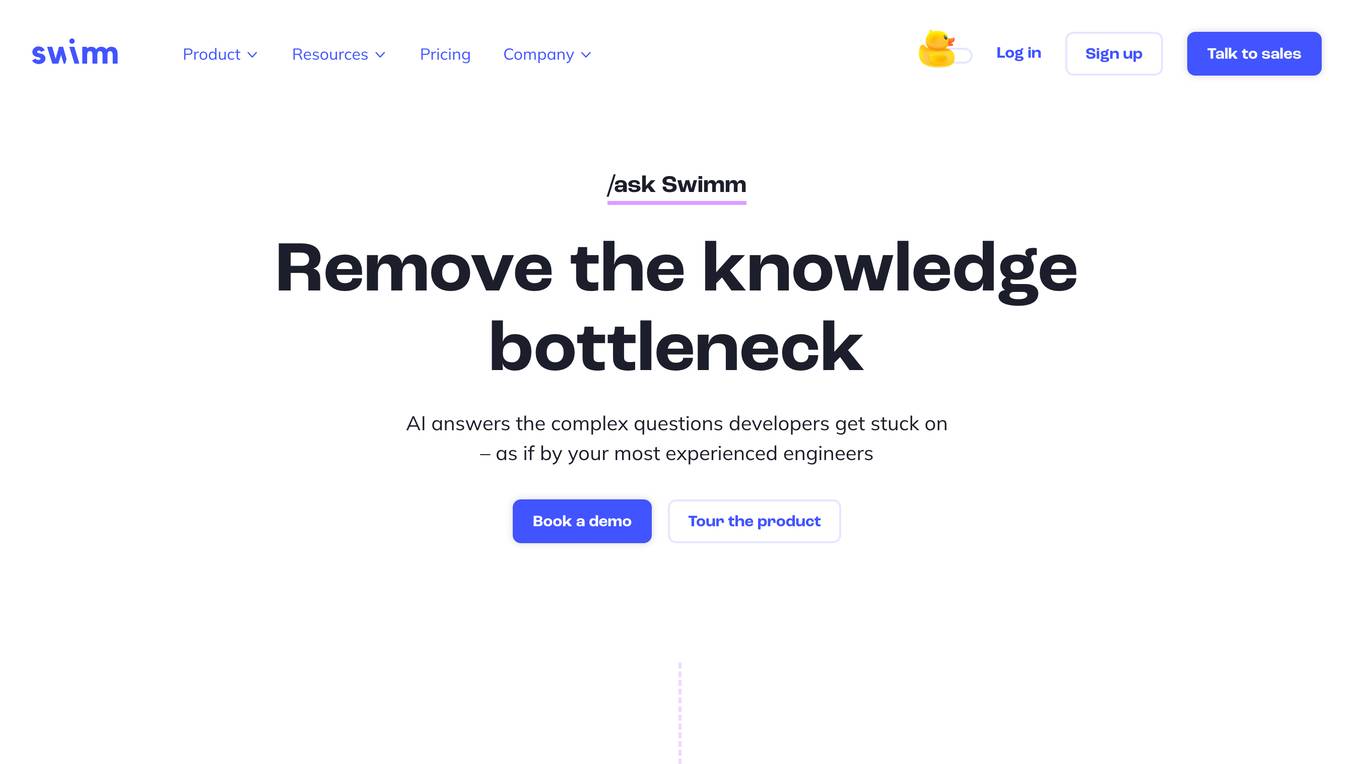
Swimm
Swimm is an Application Understanding Platform that helps users modernize and maintain their legacy code by automatically reverse engineering applications, creating a living inventory of programs and dependencies, uncovering business logic buried in code, and enabling users to plan migrations and align teams around clean architecture. It combines advanced deterministic code analysis with AI to deliver reliable results, ensuring accurate explanations and surfacing all relevant information. Swimm is secure, scalable, and customizable, allowing users to document large codebases quickly and efficiently.
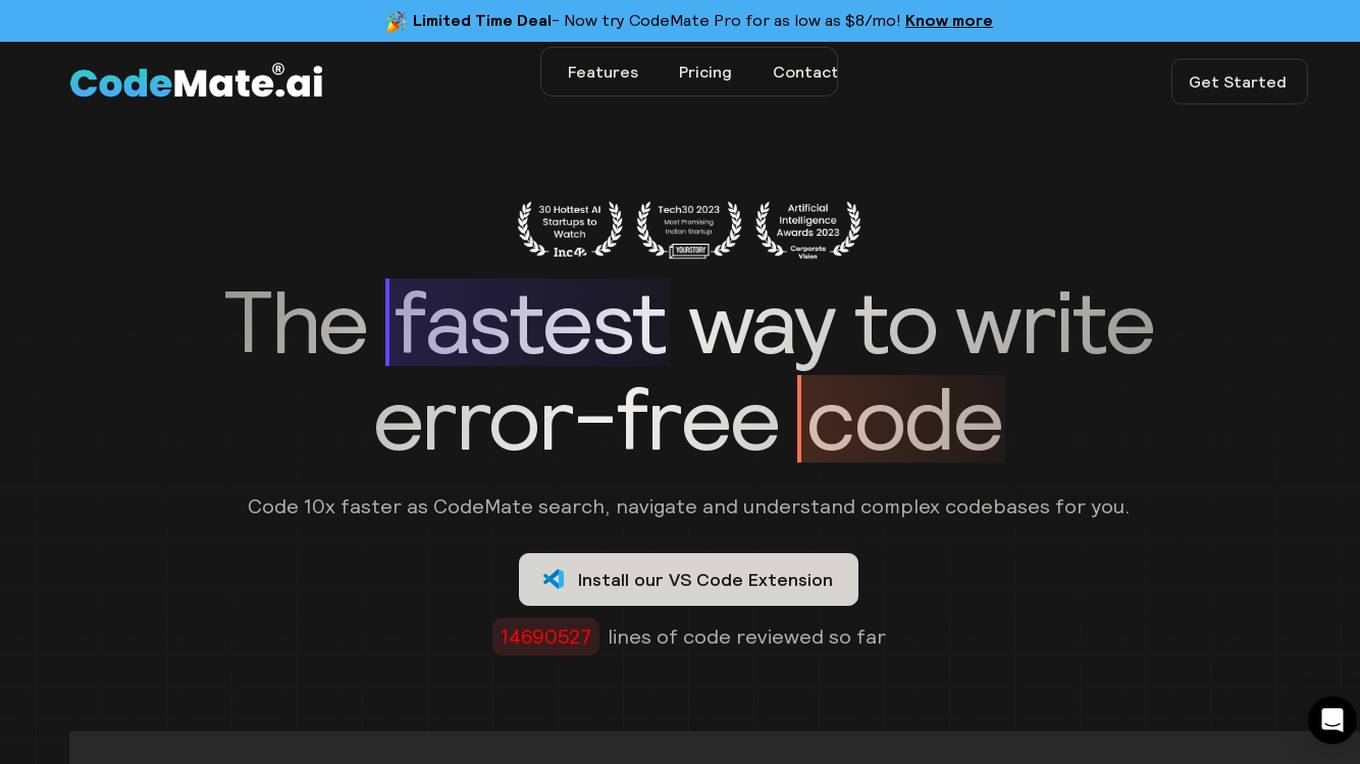
CodeMate
CodeMate is an AI pair programmer tool designed to help developers write error-free code faster and more efficiently. It offers features such as code analysis, debugging assistance, code refactoring, and code review using advanced AI algorithms and machine learning techniques. CodeMate supports various programming languages and provides a secure environment for developers to work on their projects. With a user-friendly interface and collaborative features, CodeMate aims to streamline the coding process and enhance productivity for individual developers, teams, and enterprises.
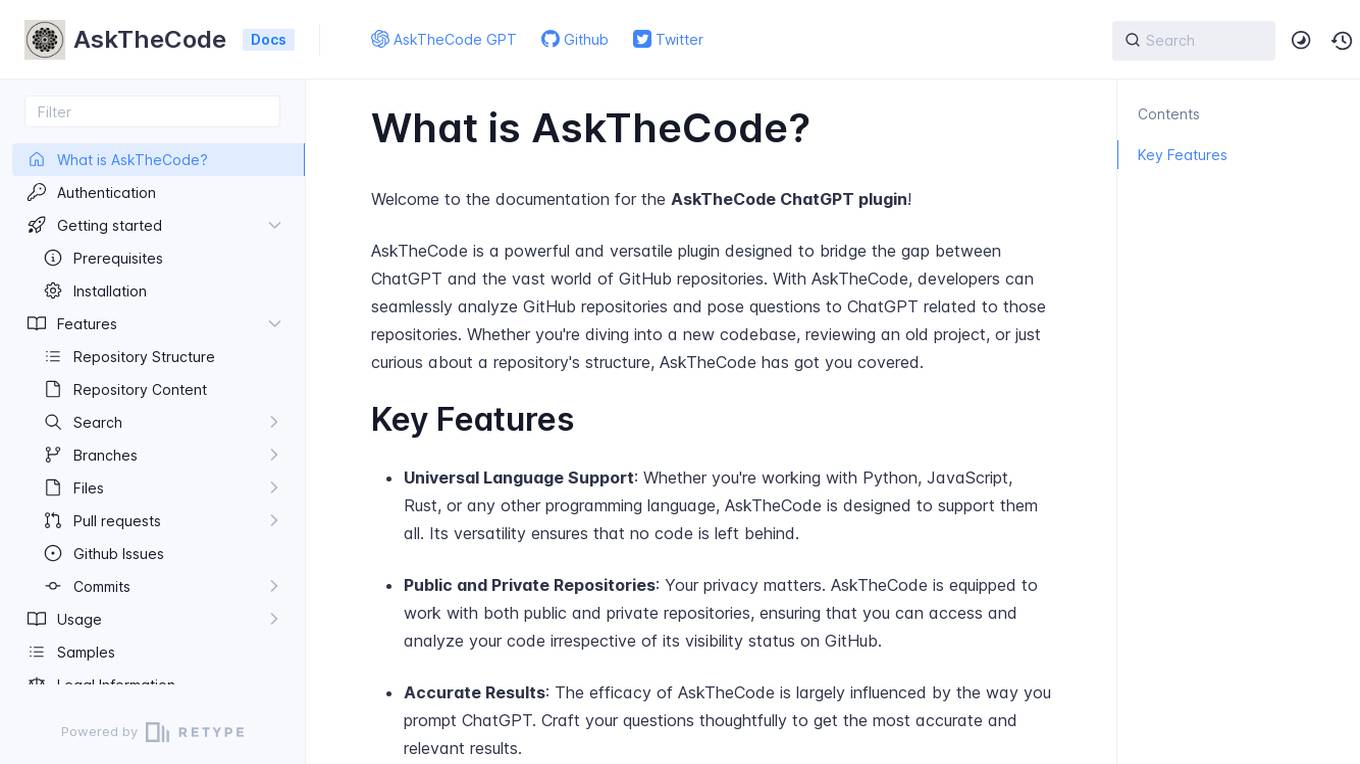
AskTheCode
AskTheCode is a powerful and versatile plugin designed to bridge the gap between ChatGPT and GitHub repositories. It allows developers to seamlessly analyze GitHub repositories and ask questions related to those repositories using ChatGPT. The tool supports universal language, works with both public and private repositories, and provides accurate results based on thoughtful prompts. AskTheCode aims to assist developers in exploring and understanding codebases, projects, and repository structures.
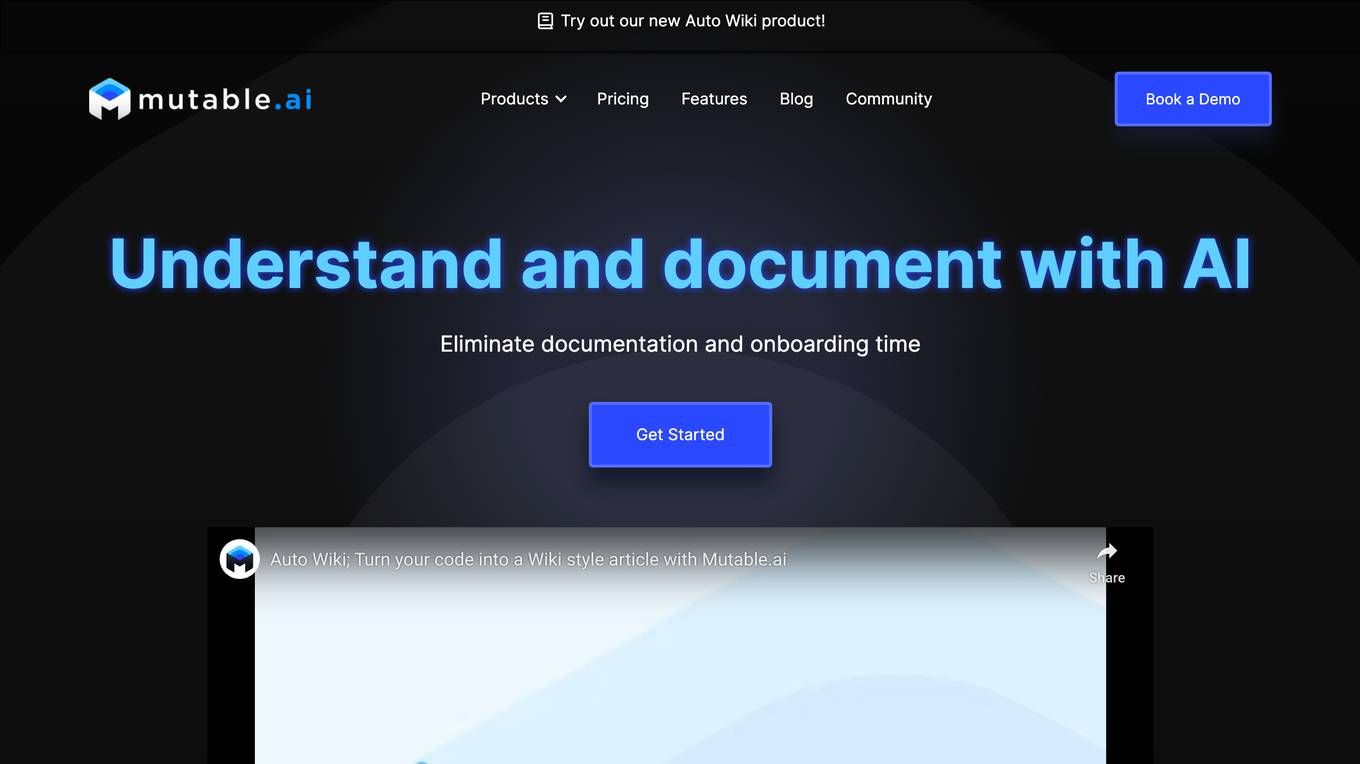
Mutable.ai
Mutable.ai is an AI tool that provides human quality assistance with codebases. It offers features such as creating Wikipedia-style documentation for code, generating wiki articles automatically, and enabling AI chat for extracting answers quickly. The application aims to enhance productivity and satisfaction for software engineers by leveraging AI advancements to revolutionize programming methods. The team behind Mutable.ai includes experts from various prestigious backgrounds, ensuring high-quality service and support.
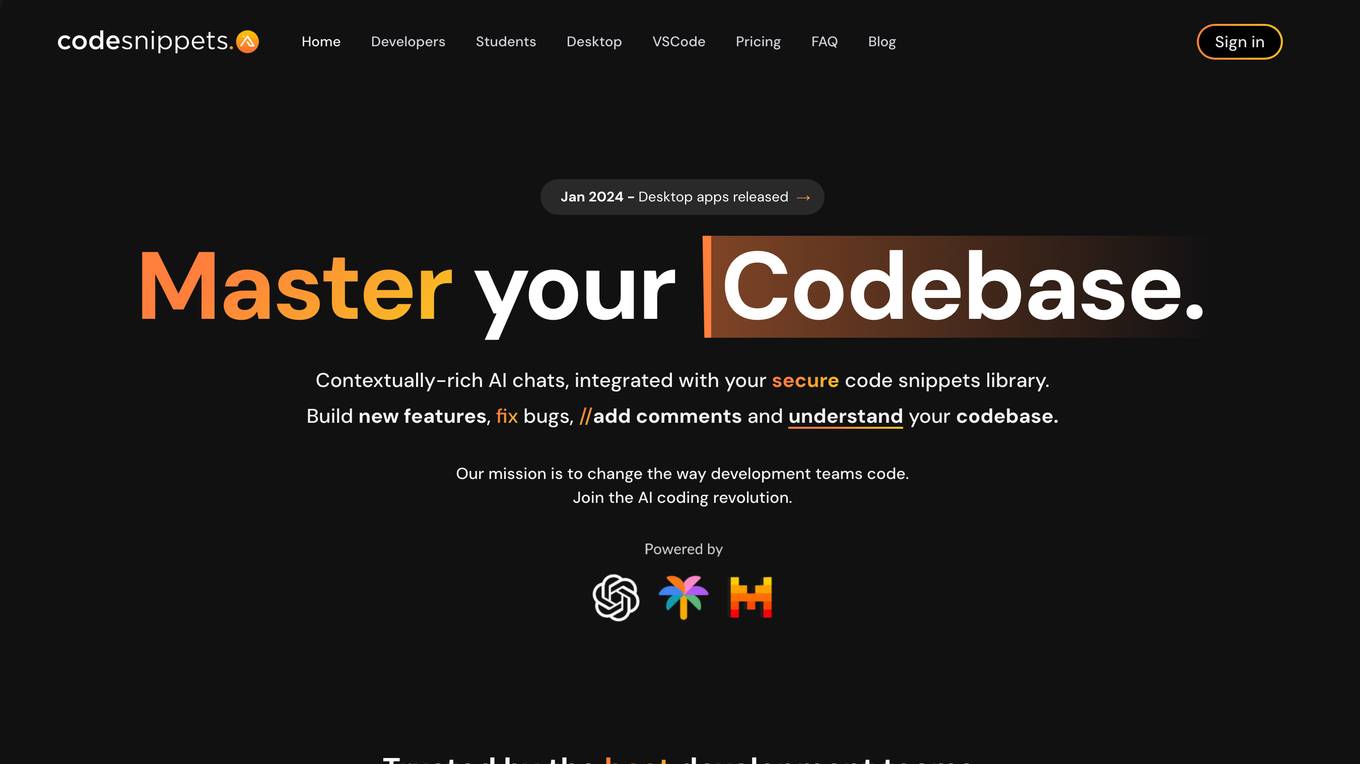
Code Snippets AI
Code Snippets AI is an AI-powered code snippets library for teams. It helps developers master their codebase with contextually-rich AI chats, integrated with a secure code snippets library. Developers can build new features, fix bugs, add comments, and understand their codebase with the help of Code Snippets AI. The tool is trusted by the best development teams and helps developers code smarter than ever. With Code Snippets AI, developers can leverage the power of a codebase aware assistant, helping them write clean, performance optimized code. They can also create documentation, refactor, debug and generate code with full codebase context. This helps developers spend more time creating code and less time debugging errors.
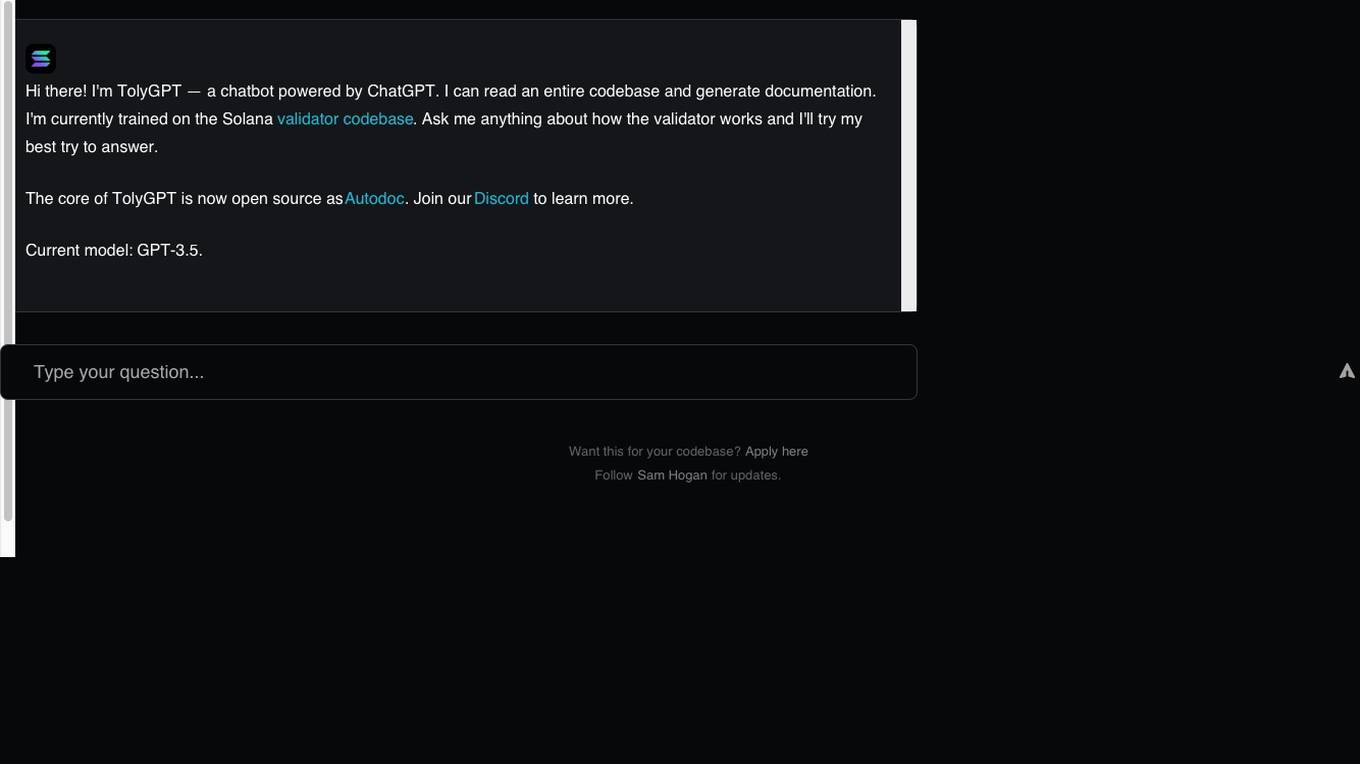
TolyGPT
TolyGPT is an AI-powered chatbot that is designed to read an entire codebase and generate documentation. It is specifically trained on the Solana validator codebase and can provide information on how the validator works. The core of TolyGPT is open source as Autodoc, and it is powered by the GPT-3.5 model. Users can interact with TolyGPT to get insights and answers related to codebases and validators.
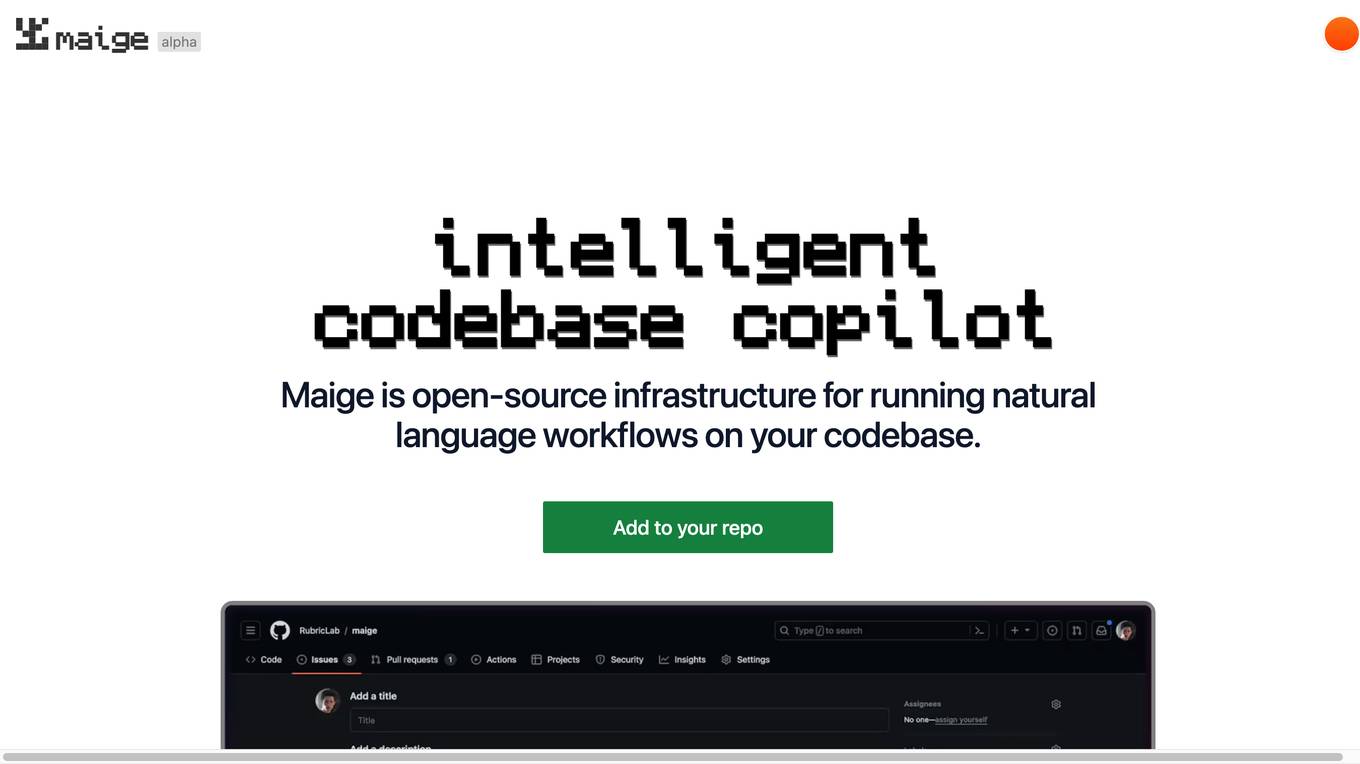
Maige
Maige is an open-source infrastructure designed to run natural language workflows on your codebase. It allows users to connect their repository, define rules for handling issues and pull requests, and monitor the workflow execution through a dashboard. Maige leverages AI capabilities to label, assign, comment, review code, and execute simple code snippets, all while being customizable and flexible with the GitHub API.
1 - Open Source AI Tools
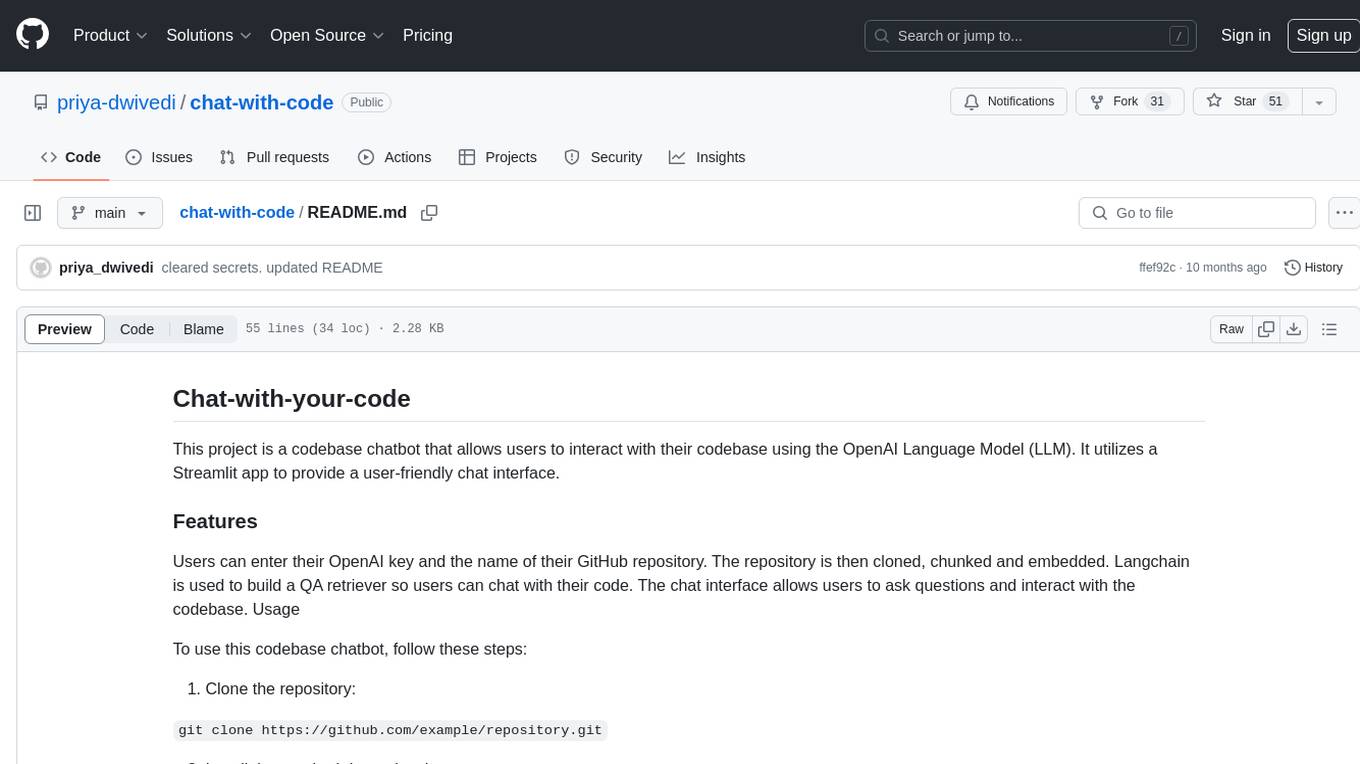
chat-with-code
Chat-with-code is a codebase chatbot that enables users to interact with their codebase using the OpenAI Language Model. It provides a user-friendly chat interface where users can ask questions and interact with their code. The tool clones, chunks, and embeds the codebase, allowing for natural language interactions. It is designed to assist users in exploring and understanding their codebase more intuitively.
4 - OpenAI Gpts
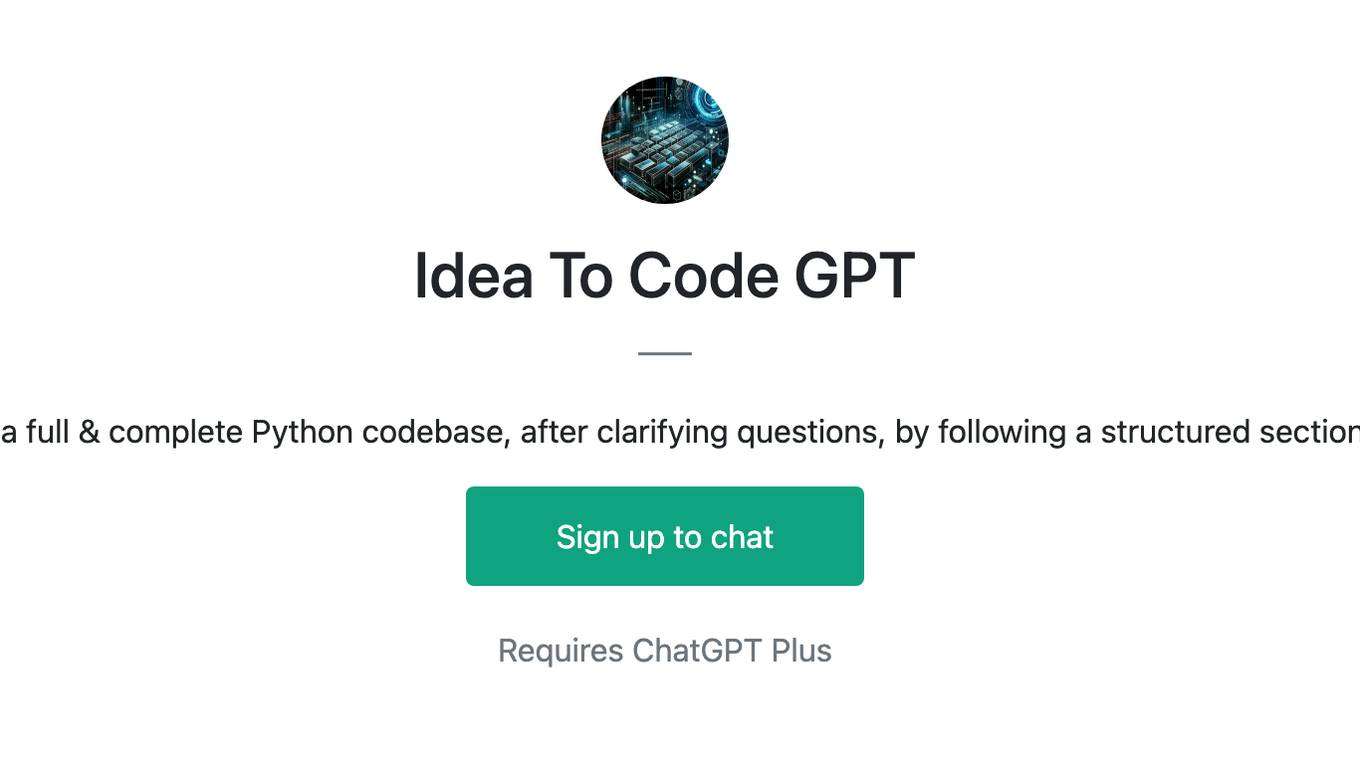
Idea To Code GPT
Generates a full & complete Python codebase, after clarifying questions, by following a structured section pattern.
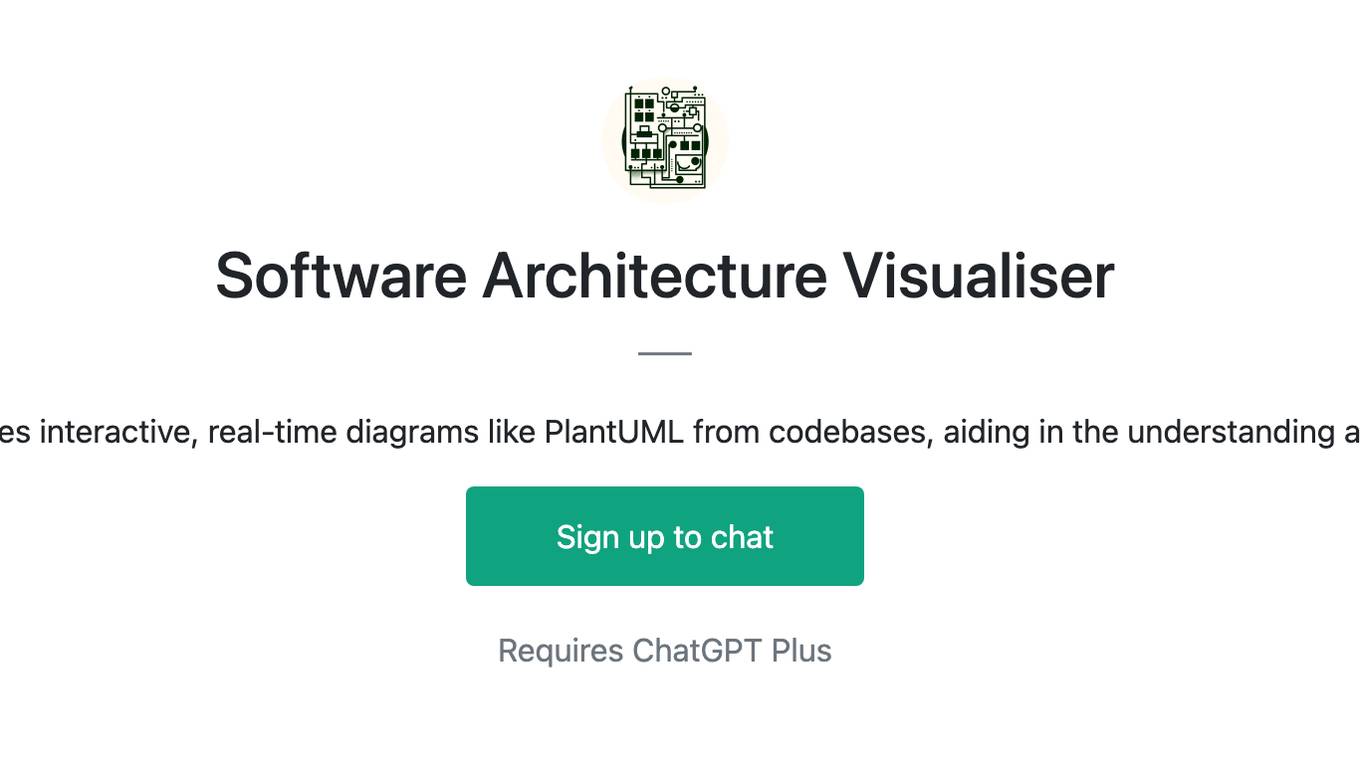
Software Architecture Visualiser
A tool that automatically generates interactive, real-time diagrams like PlantUML from codebases, aiding in the understanding and design of software systems

